The Trans-Afghan railway project, first suggested by Uzbekistan in December 2018, proposes to extend the Afghan rail network from Mazar-e-Sharif to Kabul and then to Paktia province.
Latest News
Rival Taliban factions agree on ceasefire; leader Mansour absent
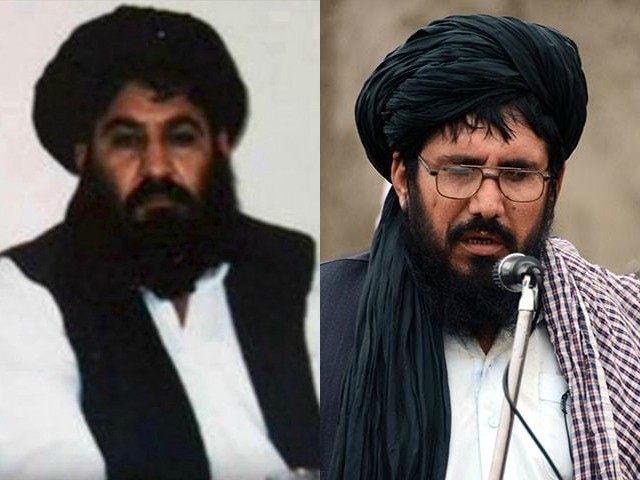
Rival factions of the Afghan Taliban agreed to stop deadly infighting, officials said, but tensions remained over the status of new leader Mullah Akhtar Mansour, who has not been seen since reportedly being shot last month.
Leadership of the Taliban has been in dispute since the confirmation last July of the death of the hard-line Islamist insurgency’s founder, Mullah Mohammad Omar, nearly two years previously.
Despite leadership disputes, the Taliban have made big advances this year, inflicting heavy casualties on Afghan forces fighting largely on their own since the withdrawal of most foreign combat troops last year.
On Friday, representatives of a splinter group headed by Mullah Mohammad Rasool Akhund calling itself the ulema, which rejects Mansour’s authority, travelled to an undisclosed location to meet the exiled insurgency leadership headed by Mansour, according to two senior officials from both camps.
“We agreed on ceasefire and prisoners’ swap, but the ulema were not given access to Mansour,” Mullah Abdul Manan Niazi, Rasool’s deputy, told Reuters by telephone.
Niazi said the delegation was only able to meet Mansour’s deputy, Haibatullah Akhund, who told the representatives that from now on, Mullah Mansour would not meet people because of security issues.
The secrecy surrounding Mullah Mansour, and its similarity to the Taliban public narrative pushed by Mansour for two years while Mullah Omar was actually dead, has raised new suspicions among the dissident Taliban commanders.
“Like many other people, we also believe that Mullah Mansour is dead and that’s why his deputy Sheikh Haibatullah refused access to the ulema council to him,” Niazi told Reuters.
Written by: Reuters

Latest News
Trans-Afghan railway project expected to be completed by end of 2027: Uzbek official
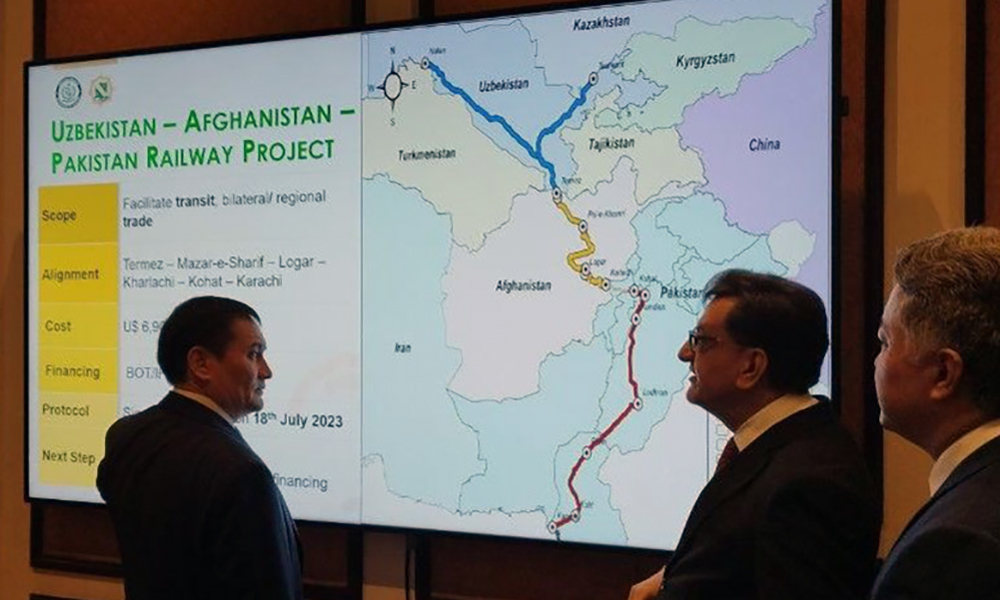
The Trans-Afghan railway project is expected to be completed by the end of 2027, Uzbekistan’s Deputy Minister of Transport Jasurbek Choriev said.
“The project will help to connect three countries: Uzbekistan, Afghanistan, and Pakistan. The railroad will play an important role in the creation of the Eurasian Transport Corridor. As a result, Central Asian countries will have access to an Indian Ocean port,” he said during the III Tashkent International Investment Forum, Trend news agency reported.
The Uzbek deputy minister noted that the railroad will reduce the delivery time of goods from 35 to 5 days, and the cost of goods delivery will be reduced by at least 40 percent.
Latest News
IFRC calls for rethink of approaches to humanitarian aid to Afghanistan

The humanitarian situation in Afghanistan is gravely deteriorating, and a new approach is urgently needed, the International Federation of the Red Cross and Red Crescent Societies (IFRC) said on Friday.
In a statement, IFRC said that without a radical rethink of approaches to humanitarian aid, the root causes of the crisis cannot be tackled sustainably, as time and funding are running out.
“We have been responding with emergency aid in Afghanistan for years now, and it is time for a rethink,” said Alexander Matheou, IFRC Regional Director for Asia Pacific. “We need to focus on Afghan institutions like the Afghan Red Crescent, which have a permanent role in the country. Their capacity is durable and will serve people before and after aid operations. We need to adapt our programming to focus on resilience and economic independence while still showing solidarity and providing assistance after sudden shocks like the Herat earthquake and the current floods.”
He went on to reiterate the IFRC’s call for investment in people.
“With limited access to education and jobs, we need a focus on youth, on professional and vocational training, and other learning opportunities—interventions designed to boost confidence and give hope. Otherwise, the future really does look grim.”
This call comes ahead of a partnership meeting hosted in Doha by the Afghan Red Crescent Society in cooperation with the Qatar Red Crescent Society and attended by participating national societies from Britain, Canada, Denmark, Finland, Germany, Italy, Japan, Kuwait, Norway, Sweden, Singapore, and Türkiye, as well as the Hong Kong Special Administrative Region of China.
“Communities are lurching from crisis to crisis at a time when their resilience is sub-zero and their coping mechanisms are exhausted. We ask our valued partners to take a long-term view and commit to tackling the root causes of the humanitarian crisis sustainably by investing in Afghan capacity, people, and systems,” said Mutiul Haq Khales, the Acting President of the Afghan Red Crescent Society.
“The needs of over 24 million people are vast and interconnected. Many have been caused by a combination of lingering impacts from decades-long conflict, climate shocks, and a deep economic crisis. The country’s resources are stretched, but capacities exist, and it is important that solutions are implemented to address the root causes of all these overlapping needs,” he added.
Latest News
AWCC launches telecom services in Kunar’s Noor Gul district
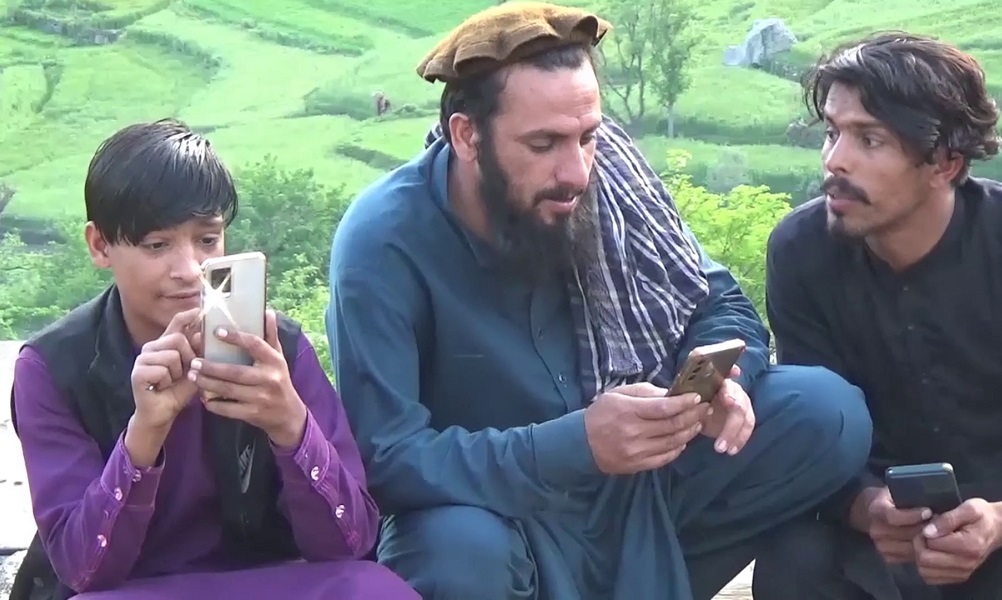
Afghan Wireless Communication Company (AWCC) has rolled out its telecommunication services in Noor Gul district of Kunar province, becoming first company to launch telecom services in the district.
Noor Gul had been deprived telecommunication services in addition to other basic life facilities.
“Telecommunication services have been launched here for the first time. The population here is very large. Many people will benefit from the services. We are trying to connect this site, which is currently connected to satellite, to Microlink in the near future,” said Attaullah Sahil, head of AWCC in the eastern zone.
The officials of Kunar Directorate of Communications welcomed the AWCC’s move.
“Around 500 families live here. Its population is about 10,000 people. Telecommunication services and facilities are provided for them. We appreciate these AWCC services,” said Abdul Wali Marshall, Kunar’s director of communications.
Jalal al-Din Shams, the spokesperson of Afghanistan Telecom Regulatory Authority (ATRA), stated: “Unfortunately, since the day that telecommunication services have started in Afghanistan, there has not been enough attention to quality. The previous governments did not pay attention to it. Fortunately, a process has started now with which ATRA and the Ministry of Communications can bring about many changes in quality.”
Residents of Noor Gul district, who previously faced many problems due to lack of access to telecommunication services, expressed their satisfaction with the latest move by AWCC.
“There was no telecommunication service here,” said Rozi Khan, a resident of Noor Gul district. “This is the first time that AWCC services have been launched here and we are very happy. We also want 3G and 4G services for more convenience. During 20 years, the government paid no attention to this valley.”
Security officials assure of providing full security.
“There were many problems here due to the lack of telecommunication services. For an ordinary call, people used to pay 300 or 400 afghanis. We assure all telecommunication companies that there is no problem in the area of security,” said Fazlur Rahman Zarqawi, the police commander of Noor Gul district.
With the improvement of security situation in the country after the Islamic Emirate’s takeover, AWCC has launched telecom and internet services in many remote areas.
-
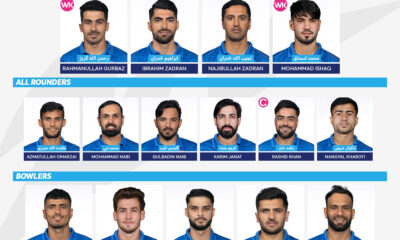
 Sport3 days ago
Sport3 days agoAfghanistan announce T20 World Cup 2024 squad
-

 Sport5 days ago
Sport5 days agoKohli slams strike-rate talk and pundits ‘from the box’
-
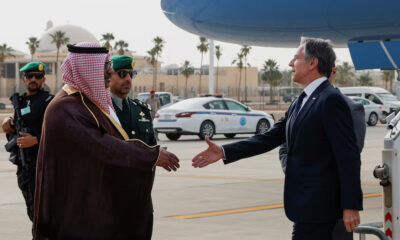
 World5 days ago
World5 days agoBlinken arrives in Saudi Arabia to discuss Israel normalization, post-war Gaza
-

 Health5 days ago
Health5 days agoNationwide polio vaccination campaign kicks off across Afghanistan
-

 Sport3 days ago
Sport3 days agoNew Zealand to go ahead with Afghanistan cricket Test
-

 Science & Technology5 days ago
Science & Technology5 days agoMercedes Benz unveils electric G-class at Beijing Auto Show
-

 Sport4 days ago
Sport4 days agoKolkata Knight Riders hammer Delhi Capitals in heatwave-hit IPL
-
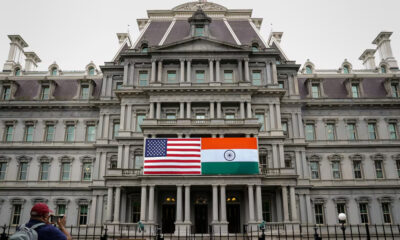
 Regional4 days ago
Regional4 days agoReported Indian role in assassination plots a ‘serious matter’, White House says
















